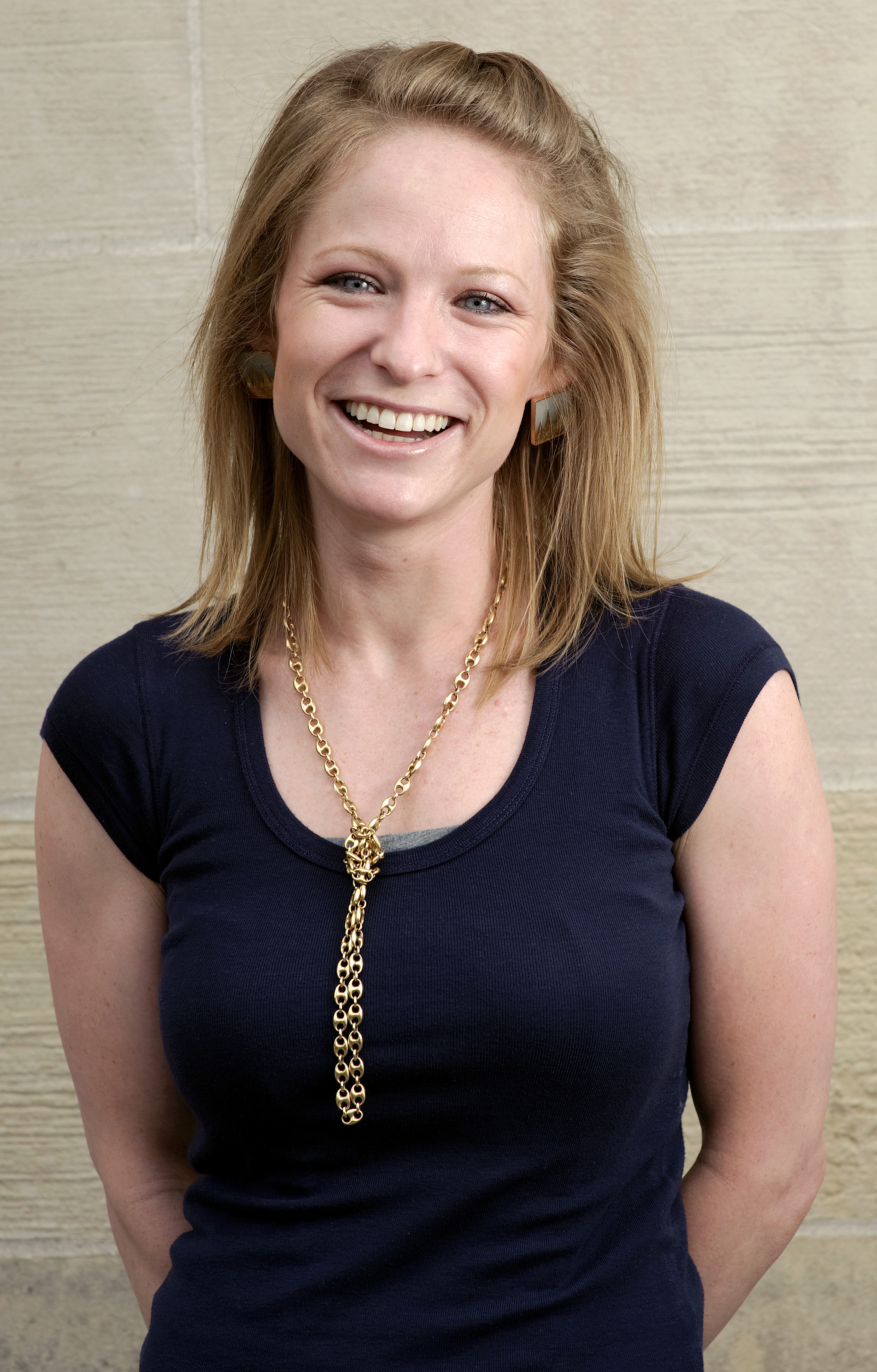Who says you can’t teach happiness?

Emily vanSonnenberg, a fourth-year psychology student, teaches a positive psychology class to undergraduates called “Happiness.” The class is new to UCLA.
By Claire Makepeace
April 30, 2009 9:31 p.m.
Emily vanSonnenberg first found her interest in positive psychology after surviving a near-fatal car accident.
“I was in a wheelchair for four months and told that I was never going to walk again. I had a lot of time to think, and someone gave me a book on positive psychology. After that I became very clear about my life,” she said.
VanSonnenberg, a fourth-year psychology student, became inspired to teach a new class this quarter called “Happiness.”
She is able to teach the class as an undergraduate through a program called Undergraduate Student Initiated Education, which allows students to develop their own lower-division seminar classes on subjects that UCLA does not offer. According to the registrar, there are approximately 15 student-taught classes this quarter.
The undergraduate teachers submit their course ideas to the Executive Academic Committee, and if approved they take a quarter of teaching training seminars before submitting their curriculum to the committee.
Positive psychology is a relatively new field of scientific psychology which focuses on the concept of happiness and looking for ways that individuals can achieve long term happiness and success, vanSonnenberg said.
The curriculum includes topics such as the role of boredom, money and physical attractiveness in our happiness, along with the role of love, sex and drugs. The “Happiness” class focuses on exploring the different factors that contribute to our happiness and on helping students achieve happiness in a sustainable way, vanSonnenberg said.
The 20-person seminar includes a discussion of topics relating to scientific research articles published by psychologists and students’ personal experiences.
In addition to empirical research, it looks at humanistic psychology such as the works of Abraham Maslow, the father of Humanistic Psychology, and the philosopher Bertrand Russell.
“There is a definite oversight of positive psychology by UCLA,” said Sarah Steigleder, a third-year psychology student who is enrolled in the class.
The class has received extremely positive feedback from students, she said, adding, “This class has given me tools to improve my happiness. I wish it were mandatory.”
Tamara Vileshina, a fourth-year psychology student enrolled in “Happiness,” said she believes it should be more prominent in the curriculum and that the course has given her an education that she can apply to real life.
Positive psychology was founded by Martin Seligman at the University of Pennsylvania and Mihaly Csikszentmihalyi at Claremont Graduate University in 1991.
The field has been gaining a lot of interest as a scientific way of studying the values that allow individuals to find happiness.
“I really want people to know that they have a say in how happy they are,” vanSonnenberg said. “Positive psychology is about giving people the tools to manage their own lives.”
The class was started at Harvard University in 2006 and held the record for most popular class that Harvard has ever had, enrolling 852 students.
“Why shouldn’t UCLA, one of the top schools in the country for psychology, include this burgeoning field of psychology that is really helping people?” she said.


